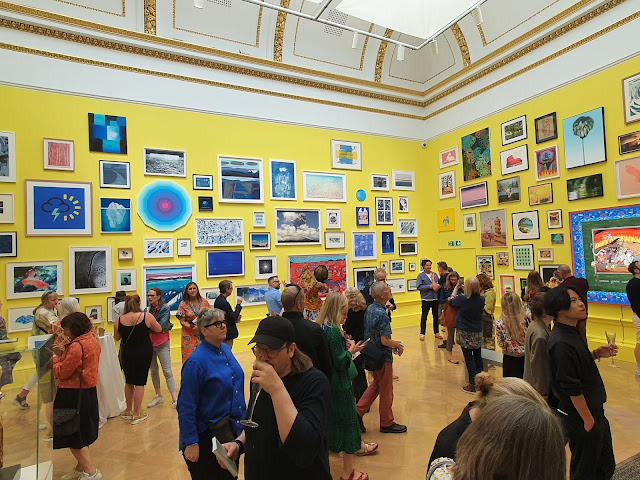This blog captures visual communication projects, past and present, by Joanna Rucklidge, tackling issues around waste, re-use and value of resources.
Tuesday 5 July 2022
Plastic 101, 2022
A family of four collected all of their plastic waste for one week. This drawing captures the 101 various types of single-use packaging disposed of; each destined for recycling or incineration. This drawing seeks to remember and make visible these items that are usually removed from our home without much attention. This artwork was a personal response to a Greenpeace initiative inviting UK residents to collect and share data generated from collecting plastic waste for 7 days in May 2022 – ‘The Big Plastic Count’.
Seaworthy Vessels, 2022
This piece was exhibited at the Royal Academy Summer Exhibition 2022. Coordinated by Royal Academician Alison Wilding, exhibiting works made by everyone from emerging to internationally renowned artists, all exploring this year’s timely theme of ‘Climate’. Whether as a crisis or opportunity, or simply our everyday experience, it is an all-embracing subject.
Swimming in Plastic, 2022
200 pieces of plastic litter found beside the River Don have been reproduced using monoprinting for a site specific installation at Sheffield Adventure Film Festival, 2022. This installation is designed to give the illusion of looking through the windows as if underwater, viewing the abundance of floating plastic waste. Single use plastics, part of a disposable culture of convenience, easily end up as litter due to their lightweight nature, and durable qualities. Even though Sheffield is land-locked, plastic litter can join waterways, and eventually reach the sea. These prints capture the objects in their lost state; now reclaimed they will be recycled. However, In both their production and disposal, they will contribute to greenhouse gas emissions. Waste reduction, through re-use and minimisation, needs to be better promoted and facilitated. ShaFF inspired this project through its screening of “If You Give a Beach a Bottle” directed by Max Romey. His film highlights that “153, 846 tonnes of new marine debris is added to the ocean every week”.
Subscribe to:
Posts (Atom)







